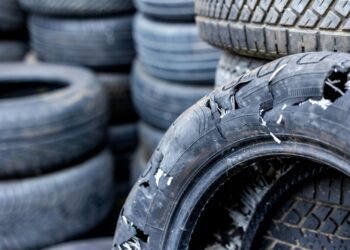Jim Puckett
In his Sept. 14 op-ed piece, Sustainable Electronics Recycling International (SERI) Executive Director John Lingelbach expresses the belief that Basel Action Network’s (BAN) publishing of export tracking data, including the names of companies that handled each tracker in its chain of export, is irresponsible without extensive and costly investigations completed prior to release of data.
First, we would like to express that it is a welcome change that we are no longer having a debate about whether or not illegal or unethical export is a significant industry problem. Gone are the days when self-serving, data-challenged “studies” proclaimed export figures to be less than 5 percent. Our 2016 report, “Scam Recycling,” documented that 40 percent of the printers, LCDs and CRTs we released to recyclers, with trackers installed, were shipped illegally to developing countries where dangerous and polluting “recycling” took place.
The export rate of trackers delivered to R2-certified companies (48 percent) was even higher than to uncertified companies (37 percent).
This is a very significant problem and we appreciate Mr. Lingelbach saying as much. The debate he has now raised is whether our data should be published or sanitized to redact the names of the companies involved in an export chain. This idea would in effect reduce the publicly released data to include only ports of export and import.
BAN has taken pains in our reports to explain that a company found in an illegal export chain does not necessarily imply culpability, but rather indicates a cause for great concern and further scrutiny. Mr. Lingelbach nevertheless believes our transparency does more harm than good, as some readers might ignore our direction and simply infer guilt.
We share this concern but believe, on balance, that far more harm comes to responsible innocent businesses – not to mention the environment and laborers abroad – when irresponsible actors profit at the expense of responsible ones, via the devastating, unfair competition of exporting hazardous waste to developing countries.
We wonder where Mr. Lingelbach’s concern is for these businesses that are damaged every day and have been for over a decade due to their commitment to engage only in ethical and legal trade.
And does anybody honestly believe there would be any reason for a company to examine their role in a chain of export or change their behavior if their name was not publicly mentioned as being part of that chain?
It is precisely due to the anonymity and hidden nature of exports to date that this unscrupulous trade has continued to flourish. Sunlight is what the trackers finally provide, and sunlight, as they say, is the best disinfectant.
Furthermore, disinfection is already occurring. While it is true that it is beyond the means of BAN’s budget to conduct thorough investigations on each and every instance of export – as, sadly, there are too many – actions are still being taken. First, as e-Stewards program administrator, we are committed to thoroughly investigating any e-Stewards recycler caught in a chain of export. To date, we have investigated three such e-Stewards-certified companies. One was removed from the program, one was exonerated and one is still being investigated.
Second, we stand ready to provide our data to law enforcement officials and to SERI. To date, SERI has declined to accept our raw data, which makes it difficult to understand how thorough their investigations can be. Law enforcement officials, both in the U.S. and abroad, have made good use of our data, which has already resulted in criminal prosecutions.
Beyond law and certification enforcement, we see a role for companies who are caught in a chain of export to conduct their own investigations. The e-Stewards business community has called for us to routinely deploy trackers within e-Stewards’ collection points as part of our Performance Verification Program.
Further, at the most recent e-Stewards “Face-2-Face” meeting, e-Stewards companies have asked to be provided with trackers so they can proactively check their own downstream. We will also be rolling out the use of trackers for large enterprise customers that are keen to enhance their own due diligence. All of this self- examination would not occur without data to spur action.
In the end, tracker technology provides an overdue “CAT scan” on an industry that has had a hidden malignancy far too long. Such data is provided to diagnose and remedy the disease. It is our firm belief that real data on illegal trade – clearly explained – is already changing behavior and by so doing providing relief for truly responsible recyclers, refurbishers and their customers.
Jim Puckett is executive director of Basel Action Network (BAN).
The views and opinions expressed are those of the author and do not imply endorsement by Resource Recycling, Inc. If you have a subject you wish to cover in an op-ed, please send a short proposal to [email protected] for consideration.

























